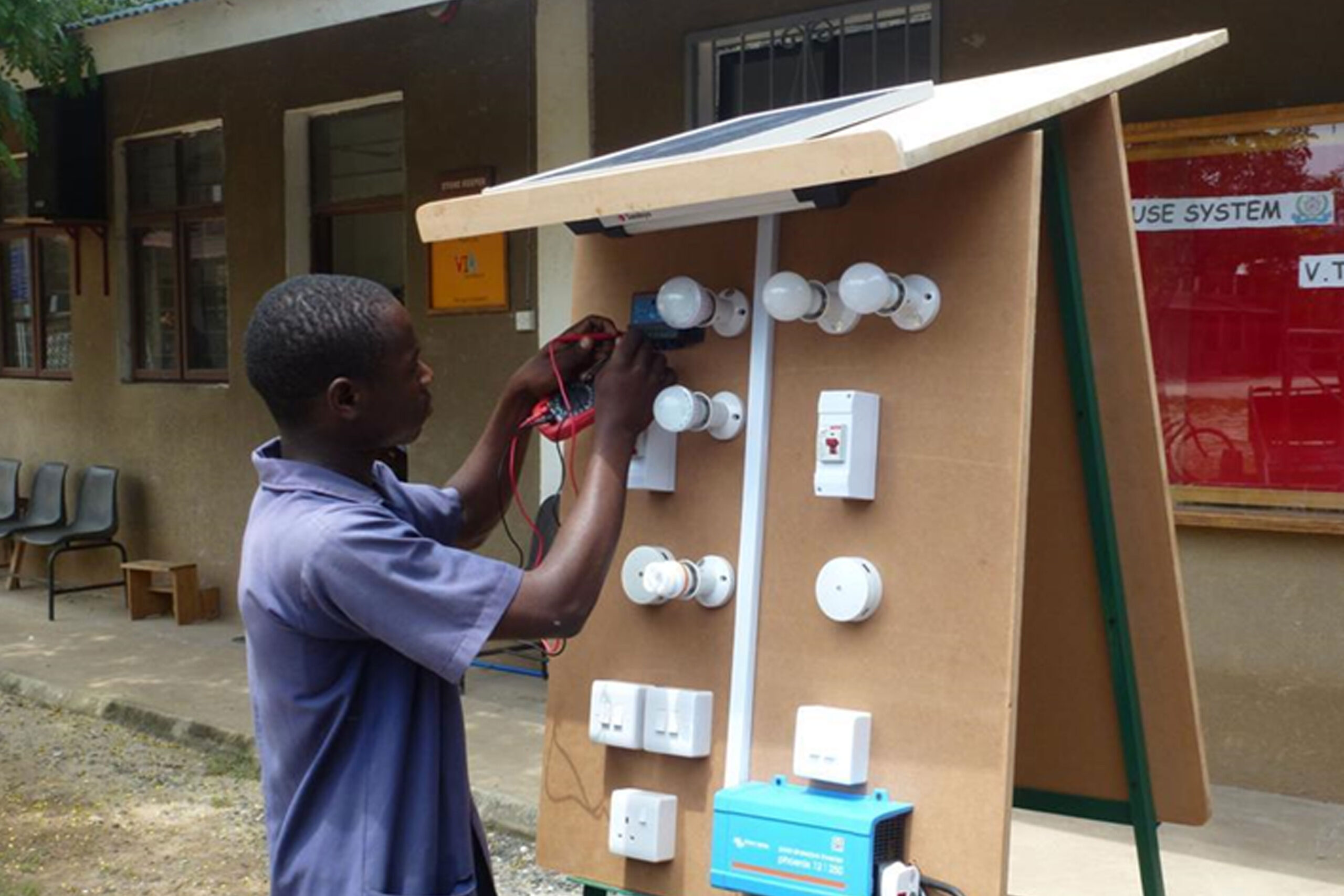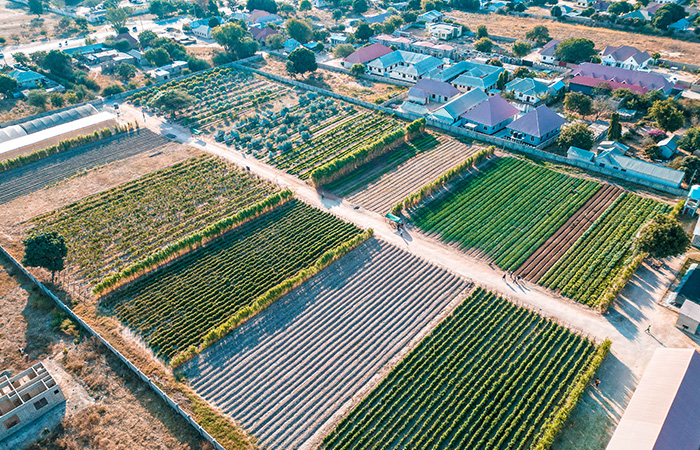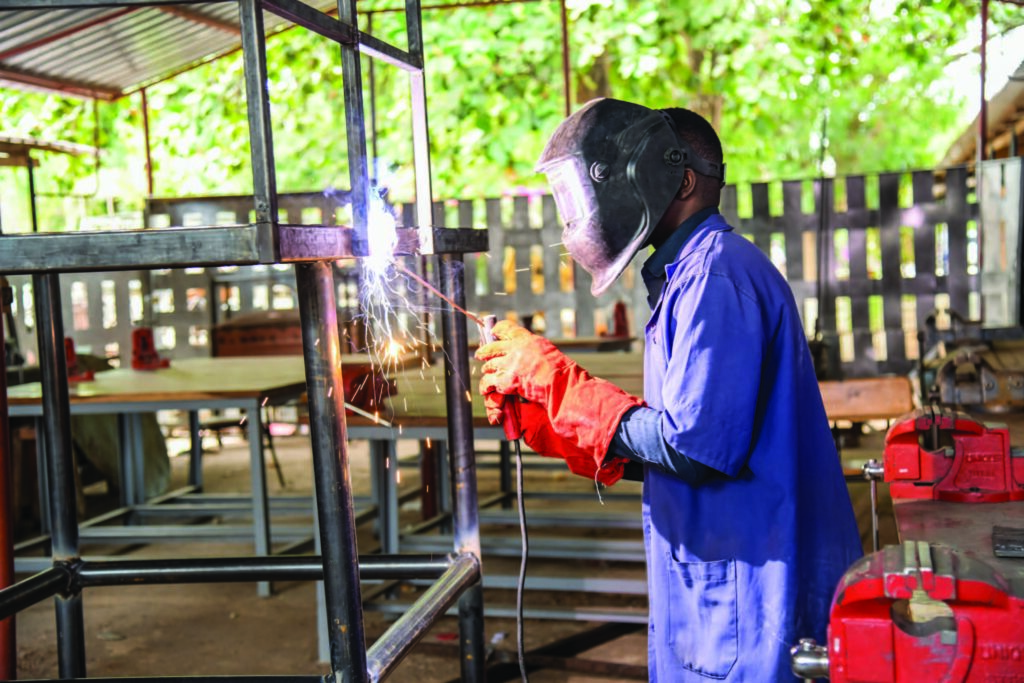
As the proliferation of renewable energy particularly Solar Energy continues across Tanzania, on-grid markets and project initiatives are gradually losing their niche status and solar energy is increasingly becoming more commonplace, particularly in the rural areas of the country. Solar products and services are now a common sight in shops and markets throughout the country. Several factors have contributed to this growth both from the supply as well as the demand-side and the trend is projected to upsurge in the long run.
Don Bosco Oysterbay’s s strategic direction towards green TVET originates from the ongoing global agenda on transitions to green economies and sustainable societies which requires policymakers, employers and workers, economic, social, and environmental actors, educational and training institutions, and individual citizens to make the right choices. The shift to low-carbon economies requires not only new regulations, investments, and institutional frameworks, but also TVET to engage more systemically in response to the changing job opportunities and skills needs that a green development agenda brings about.
The introduction of a solar training and installation technician training program at Don Bosco Oysterbay VTC funded by Misereor focuses on training enrolled marginalized and disadvantaged youngsters in photovoltaic (PV) technology as a countermeasure to address the shortage/limited technicians in the solar energy sector to install and ensure regular maintenance of solar systems and established solar projects. The established program was designed with a supposition that Technical and vocational education and training (TVET) is the strategic entry point for ensuring a world of work that contributes to social cohesion and promotes environmentally sound sustainable development and TVET and skills development initiatives play a significant role not only in developing human and social capital but also in promoting necessary skills, knowledge, and expertise needed for more sustainable societies and greener economies.
Since the inception of the project in 2018, Don Bosco Oysterbay VTC has been able to train a total of 226 students in photovoltaic (PV) technology out of which 45 trainees have successfully been employed in different domains of the solar ecosystem. The provided training program which consists of both electronics and Solar system training is designed to provide a technical foundation for photovoltaic (PV) technologies and reinforces classroom learning with hands-on demonstrations.
Salehe Juma pursued his career in the domain of electrical installation but was also integrated into solar energy after the introduction of SOLAR TRAINING AND INSTALLATION PROJECT sponsored by Misereor at Don Bosco Oysterbay VTC. After successfully graduating for his Level 3 Salehe successfully secured employment at HUSK POER SYSTEM. Since his recruitment, Saleh acknowledges to have been able to grow as an employee and he recognizes that his achievements can be credited to the training he acquired at Don Bosco, the support from other employees, and individual focus. Salehe shares his top 3 things he has learned and helped him excel professionally.
“Curiosity”
Salehe acknowledges that his curiosity has enabled him to acquire massive knowledge about how things work since his early learning days and currently at the company. “I tend to ask a lot of questions to my colleagues to a point that I feel I become a nuisance to them sometimes. But I aim to find out how things work/operate because some things are quite new and the only way I can find out is by asking. I would ask 20 questions and when someone thinks I am done I have another 35 questions. I am happy my colleagues are bearing with me and I must say it helps me learn a lot. I appreciate the support I am getting”.
“Continuous willingness to Learn”
Salehe admits that his willingness to learn has been crucial to his development. “I have been a willing student to learn since my time at Don Bosco. Our superiors here do not expect we are perfect so they tend to teach us some things now and then. I tend to maximize this learning to the fullest because I know it will enable me to effectively do my job”.
“Focus”
“I am very focused on my job because I know employment is not easy to find nowadays. I see that from my friends, family, and other people who are striving for employment opportunities. My focus has also enabled me to attain support from other senior employees because they are really keen on their jobs and seeing my desire and focus gives them the motive to support me whenever I need their support” explained Salehe.
Through its undertakings, Don Bosco Oysterbay advocates partnerships and cooperation/collaboration for promoting the necessary capacities in TVET and skills development for allowing a rapid and equitable shift to greener economies and more sustainable societies. Through its Job Services Office the institution has developed a network of significant partners across the solar energy ecosystem enabling the undertaking of other value-added interventions (study tours, field attachments, internships, consultancy, and capacity building for trainers) to increase the value of the education provided at the institution.
In the context of sustainable development, the concept of green economy has established itself on a global level as the new environmental guiding principle. The key message of the concept is that environmental protection should be considered as more than just a general cost factor; on the contrary, it may offer opportunities for more economic growth, increased prosperity, and social justice. The current green transition agenda at Don Bosco Oysterbay VTC is envisioned to bring new employment opportunities among the marginalized youngsters but will also alter existing jobs. In order to avoid high social costs and, at the same time, to tap the employment potential of green jobs, the institutions apprehend the need to anticipate and respond to skill changes needed for successful careers in low-carbon economies. DB Oysterbay VTC aims to prepare their learners for being responsible and well-informed producers and consumers, and for being able to act competently, creatively, and as agents for sustainability in their workplaces and society at large. The institution considers investments in TVET and skills development initiatives needed for the green transition to enhance environmental awareness, competency, innovation, and entrepreneurship, and thus opening new market opportunities for environmental goods and services, promoting green innovation and green growth, and putting our world on a more sustainable development path.


